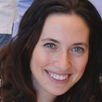What It's Like to Write a Book

A question that I get asked occasionally, usually with a wide-eyed look of expectation is – what is it like to write a book? This question is not directed at the end result – the publishing, or the release of said book. Neither is the question directed at the creative process, or the so called muse – if there is such a thing. Rather, what people are curious about, is the modus operandi – the HOW. I have been trying for some time now to come up with some sort of coherent response, which is not easy, because all of a sudden the question makes me feel quite self-conscious. So, let me begin with what the process of writing a book is NOT like, for me.
Writing a book is not like baking a cake; there is no set recipe, process, measurements, temperatures or tools. You also don't have to be in a particular place at a particular time. Besides which, even the most precisely planned and executed creations may not work out well.
Writing a book is not like taking a journey; it is done in parallel to all the other things that are in your immediate realm of responsibility. I personally don't find myself phasing in or phasing out of a writing trip. A journey also assumes a specific destination, and for me this is seldom the case. I may have a generalised sense of where I prefer to go – but very seldom do I know – or want to know – where I will eventually land up.
Writing a book is not like having a baby. It is true that the writing phase is similar to the gestational period in terms of the evolution of the maturity of the work. However, unlike pregnancy – hopefully – the peaks are usually greater than the valleys. Besides which, sometimes –no often – you destroy parts of what you have created along the way. This completely eliminates the whole pregnancy metaphor for me.
So what IS it like? I have thought about it a bit, and perhaps this sounds a little unusual, but the writing process for me is a bit like leading an ongoing talk show. You have an idea of who you want to invite to the show, you research them as much as relevant, but, then when they come to you, you let them reveal their true selves bit by bit.
Sometimes what is important is the ensemble: the collaboration, energy and dynamism of the group. Other times, you just want to dive into the life and time of one person and get them to paint a picture, to give a context, to set the scene.
So over a period of time I lead my own talk show. I am not methodological or pedantic about my process. The talk show can take place anywhere and at anytime, as long as I am open to listen and hear. I don't do outlines or plotting. I don't always know who I will meet along the way, and what the significance of their presence is, or will become, if anything. But, everyday, when I sit down to work, whether my talk show is in my home office or in a park, or over a cup of coffee, I meet the people in my narrative. They talk to me and I capture it all in writing.
Then, before I air my show, l begin to edit, to polish, to eliminate, to piece together the dialogue and characters. To adapt my storyline and plot to so that it all comes together, in a holistic and convincing manner. And just like that, I am done.
My guests remain with me for a long time. Even after I am done with them. Sometimes I wonder whether I should have asked them something differently, or whether I should have set them up with another person that I met along the way. However, at a certain point, one has to let go because once your book is out in the 'real' world, in many ways, it's no longer yours. But, that is a whole other story.




